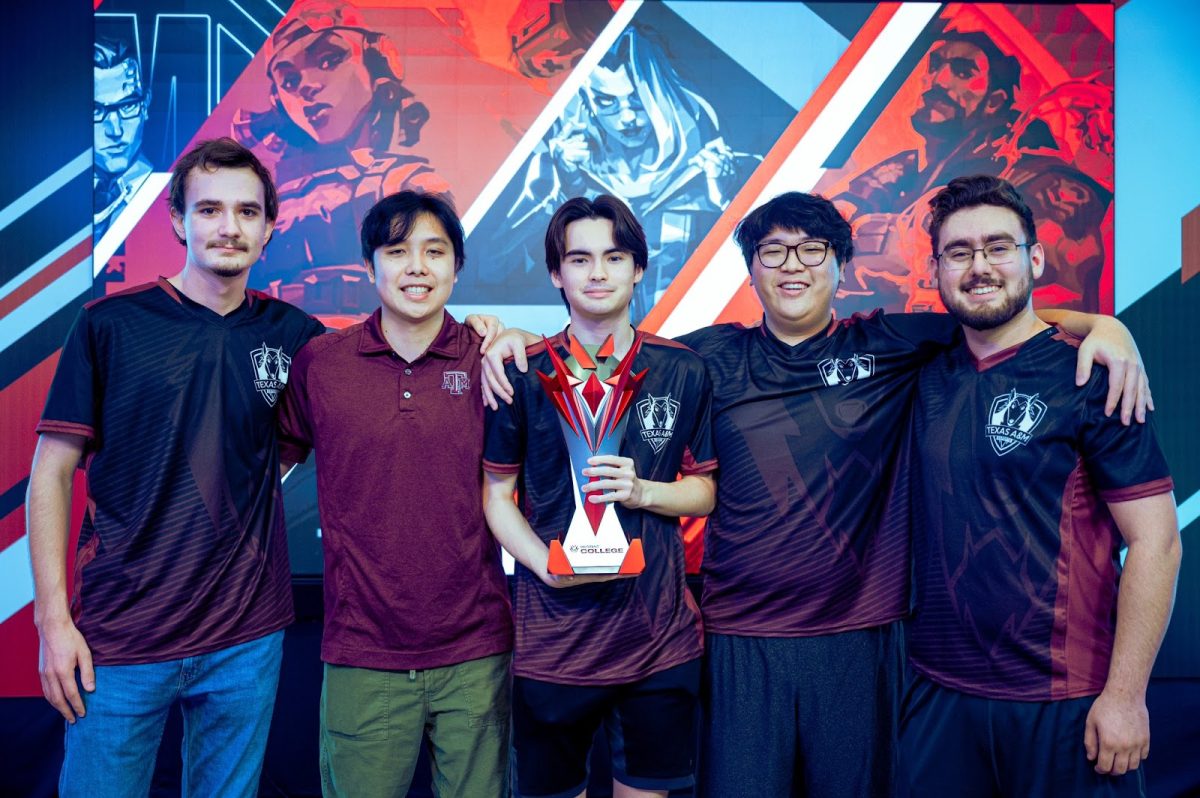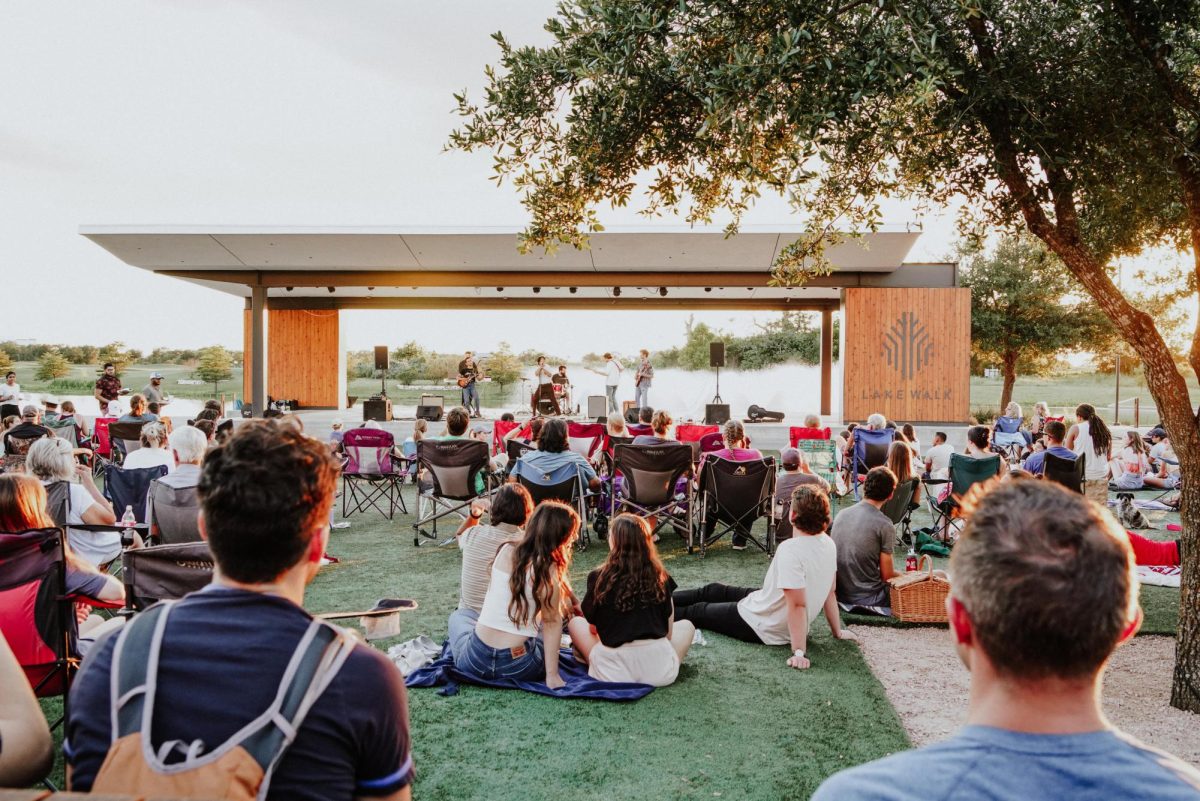The Battalion Life & Arts reporter Keely Wirries sat down with Elizabeth Acevedo, winner of the 2014 Beltway Grand Slam Champion, the nation’s largest slam poetry contest, and one of only three women in the country to have won the contest. Acevedo is in town for the SCOLA conference over the weekend. This year the conference is focused on individuality, which is Acevedo’s specialty in poetry.
THE BATTALION: What does it mean for you to get to travel the country influencing young people with your poetry?
ACEVEDO: You know, it’s a dream come true. I’ve been performing since I was 14 years old and always was kind of looking for performers who were of the same background, and women I could look for as an example, and there were very few. So for me it is really important to get out and engage with college students and high school students and as many young folk as possible to be the example I always wanted to see.
THE BATTALION: What about your poetry is so influential?
ACEVEDO: I speak a lot about identity and about the ways in which I am still figuring out the person and women. I want to be and I think particularly with the age range of 18 to 22 that are in college, a lot of that is the goal. There is the classroom experience but then there is establishing ideals and the ways in which you are going to walk to the world and I think a lot of people are going to relate to the fact that my poetry is about passion and about being who you want to be and focusing yourself on that journey.
THE BATTALION: How does your diverse background influence your poetry?
ACEVEDO: That’s a hard question to answer because I don’t know anything else—I write what I know and my diversity is what I know. So I don’t think I can separate the intersections that make up who I am, and thusly my writing. I think, though, that there is definitely something to living in a big city that’s very full of immigrants and immigrants from all over the world. There is a way in which you grow up in a very diverse atmosphere, and I went to school with people who spoke all different kind of languages and from all different islands and from all countries, I think that lets you have the perspective of thinking globally, which was very big for me and is still big for me in order to be looking towards the world to understand where I’m at. And definitely being Dominican, which there is a huge population in New York city, is big because I’m an American and very much a New Yorker but that’s all influenced by my parents background and my immigrant story so there is a way in which I navigate being an American when its being influenced by growing up in a very global world and with a global view on what it means to be an American that affects my writing.
THE BATTALION: Some of your writing has been labeled controversial, what adversities have you faced because of that?
ACEVEDO: I talk a lot about race and I talk a lot about being a woman, I don’t shy away from any of those topics I think that especially creative writers should always write what they are most afraid to say because it’s probably what isn’t being said by anyone. I don’t really concern myself with if my topics are controversial, I know they might be depending on who is listening, but I think that is part of what I want to bring to the discussion is that it’s okay to talk about things and work through things as a community, luckily the stage and interacting with the audience allows that.
THE BATTALION: Why is it important to share your poetry?
ACEVEDO: “I think it depends on the writing. Somethings I write are just for me, but also I think that there is a lot of ego involved in writing. You want to be able to share and want to make an impact and you want people to see your work and for me there was something growing up that there was someone putting their words on paper and thousands and thousands of people are reading it, all just because that one person had a thought and wrote it down. I was really influenced by that and wanted to be that kind of person who has an impact where my words will be read long after I’m gone. I think there is a lot of legacy and a lot of stories that go untold that we’ve always wanted to read or hear and they haven’t been there because no one has put them on paper or put them on stage yet so now I have the responsibility of being that person.”
THE BATTALION: Why did you start performing?
ACEVEDO: I started performing because I had a high school teacher who kind of forced me. I wanted to be a rapper, honestly, I wanted to do hip-hop. I thought it was really cool and I just I love music — so I’ve always had a little bit of a performer in me. But I started doing poetry and putting myself out there because I had a lot of influential people in my life who encouraged me to share that work and exchange with people and to listen to poetry and to believe that what I had to say was important.
THE BATTALION: What makes your poetry award-winning?
ACEVEDO: “Oh I don’t know, I think it depends on the reader. I think I am a strong writer and take my craft seriously and I edit heavily and I very rarely put a poem on stage that I haven’t been working on for five to six months so I think there is a lot of behind the scenes work that goes into my work and maybe that shows though. I think I have a good ear for sound and there is a way I can tap into that, but I think the entire thing is really just subjective.”
THE BATTALION: When crafting your poems what are some things you think about?
ACEVEDO: Initially I think I just think about what I am trying to get across or the moment I’m tapping into that a reader will be able to hold onto. After that it is music or sound or images, I love to use figurative language in a way that it can kind of bridge understanding, so I’m always looking for ways in which I can bring figurative language in to make the poem more visually appealing or make the reader see what I’m trying to say.
THE BATTALION: Have you ever been to A&M before? What do you expect from the crowd?
ACEVEDO: “No! I haven’t! I’m so excited! I know that it is a huge conference, over 200 people, which is very exciting. I’ve performed for pretty large audiences before but never a full set with that many people, so I think it is going to be incredibly interesting to see the energy people bring when they have spent an evening with you and hear your stories. It is going to be great to exchange with people and give those poems to them, and also I just like Texas, right, it’s awesome! I’m also excited to see how the crowd will take my poems, I don’t know how many Dominicans will be in the audience or how many New Yorkers so it will be interesting to see how my audience will stand. Hopefully they will be able to relate but will also probably find some things really foreign, so it will be fun to play with the poems and get the audience engaged and see what the audience likes and what they don’t.”
THE BATTALION: What do you from the crowd?
ACEVEDO: I think respectful silence is overrated. I definitely believe in feedback. Poetry readings are a little bit different, there is more of a tradition of silence and respect, but spoken word allows for more of an energy exchange and for people to respond and clap and give emotional responses and as a performer it’s good to know an audience is with you and that they are present, especially when you are doing something like an hour. I love to see when an audience is responsive, I think it adds a lot to the whole experience of the evening.
THE BATTALION: What has been your favorite performance and why?
ACEVEDO: “I did a keynote a couple of weeks ago atSkidmoreCollege and it was fascinating because I prepared but very loosely. I usually prepare down to the letter, but this was a performance that I really spoke from the heart and kind of wove poems together. I focused more on the talk than the performances, and it was one of the performances in recent memory where I really connected, I think it had to do with the authenticity of ‘I just really want to talk to you and tell you this story and then show you how these poems came about’ as opposed to reading poems and talking in between. I think there is something in the way in which the natural themes came through and I think the audience really wanted to see the stories behind the poems instead of just the poem. I was more balanced it was at a women’s conference so they were incredibly responsive and the questions really made it during the Q&A, they just had so many questions about the poetry and all the themes I focused on—like how do we become who we want to be, and for me it was just transformational—it was incredibly thoughtful and I responded to it.”




















